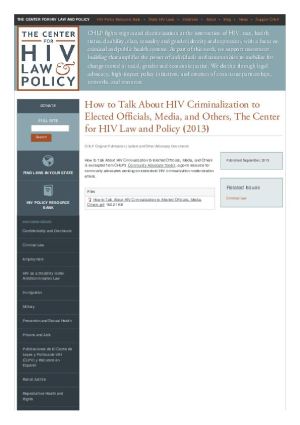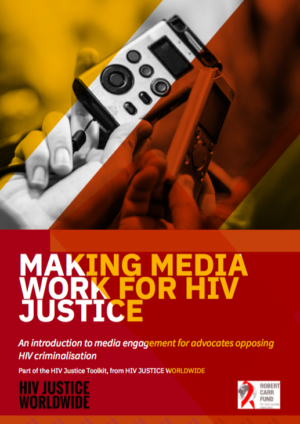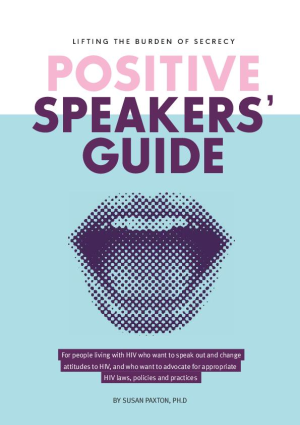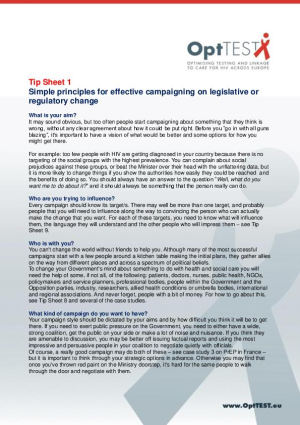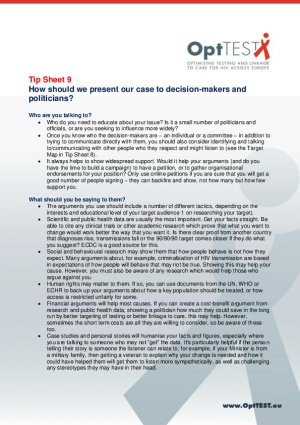This excerpt from the Center for HIV Law and Policy’s Community Advocate Toolkit, produced in 2013, lists talking points, each including a list of supporting resources and links. Covers many of the legal, public health, human rights, and social justice issues that HIV criminalization raises.
Communication and media
Media campaigns and messaging
HIV Criminalization: Attitudes and Opinions of the American Public
Assessed current attitudes about HIV-related issues and tested messages that might be used to educate the general public and gain support for advocacy to modernise or repeal HIV criminalisation statutes. Suggests great opportunity to change public opinion but messaging must be simple, easy to understand and to the point. Information that current laws are inconsistent with scientific knowledge had considerable resonance, as does messaging that HIV laws unintentionally discourage testing, obtaining treatment and voluntary disclosure. Messages about civil liberties were least effective.
Making Media Work for HIV Justice: An introduction to media engagement for advocates opposing HIV criminalisation
The purpose of this critical media toolkit is to inform and equip global grassroots advocates who are engaged in media response to HIV criminalisation--and to demystify the practice of working with, and through, media to change the conversation around criminalisation. The toolkit provides an introduction to the topic of HIV criminalisation and the importance of engagement with media to change narratives around this unjust practice. It also features a number of case studies providing examples of how media played a significant role in the outcome, or the impetus, of HIV criminalisation advocacy. In addition, the toolkit includes reporting tips for journalists, designed to educate writers and media makers around the nuances of HIV criminalisation, and the harms of inaccurate and stigmatising coverage.
Lifting the Burden of Secrecy – Positive Speakers’ Guide
Manual for people who want to speak out and change attitudes to HIV and who want to advocate for appropriate HIV laws, policies and practices. Includes steps to a successful advocacy campaign and examples of how people living with HIV around the world have specifically advocated for policy change, and some of their success stories.
Storytelling to Change Laws & Fight Stigma
During this workshop, The Elizabeth Taylor AIDS Foundation (ETAF) shared how storytelling has affected the modernization of HIV criminal laws across the United States and is now being used to change laws in other countries around the world.
OptTEST Tip sheet 1 – Simple principles for effective campaigning on legislative or regulatory change
Tips on how to run a successful media campaign to generate change,
OptTEST Tip sheet 9 – How should we present our case to decision-makers and politicians?
Explores how to educate decision-makers and politicians, best ways to communicate, how to frame the arguments etc.
A comprehensive methodology for monitoring social media to address and counter online hate speech
"A Comprehensive Methodology for Monitoring Social Media to Address and Counter Online Hate Speech” aims to set up a systematic and common approach for monitoring hate speech in full respect of international human rights law and standards and based on the UN Strategy and Plan of Action on Hate Speech. It is envisaged to help the work of various UN entities, and all relevant stakeholders engaged in tackling hate speech, including by providing examples on how to do this practically. It also provides an opportunity to reflect on what areas would benefit for further research and action to advance the fight against online hate speech globally.

